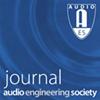基于虚拟现实的听力科学研究:一种平台化方法
IF 1.6
4区 工程技术
Q3 ACOUSTICS
引用次数: 0
摘要
临床评估缺乏生态有效性,以及研究多模式感觉处理的挑战,仍然是听力科学的关键挑战。虚拟现实(VR)可以通过将实验控制与情境现实相结合来支持这些领域的听力研究。然而,基于虚拟现实的实验的开发传统上对资源要求很高,这对希望将虚拟现实作为研究工具的基础和临床研究人员来说是一个巨大的进入障碍。奥替康医疗虚拟现实(OMVR)实验平台快速跟踪听力研究实验模板的创建或改编,用于探索双耳空间听力、多模式感觉整合、认知听力行为策略、听觉视觉训练等领域,给出了实现的关键要素,对重要的性能指标进行了表征,并给出了用例感知评估。本文章由计算机程序翻译,如有差异,请以英文原文为准。
Virtual-Reality-Based Research in Hearing Science: A Platforming Approach
The lack of ecological validity in clinical assessment, as well as the challenge of investigat- ing multimodal sensory processing, remain key challenges in hearing science. Virtual Reality (VR) can support hearing research in these domains by combining experimental control with situational realism. However, the development of VR-based experiments is traditionally highly resource demanding, which places a significant entry barrier for basic and clinical researchers looking to embrace VR as the research tool of choice. The Oticon Medical Virtual Reality (OMVR) experiment platform fast-tracks the creation or adaptation of hearing research experi- ment templates to be used to explore areas such as binaural spatial hearing, multimodal sensory integration, cognitive hearing behavioral strategies, auditory-visual training, etc. In this paper, the OMVR’s functionalities, architecture, and key elements of implementation are presented, important performance indicators are characterized, and a use-case perceptual evaluation is presented.
求助全文
通过发布文献求助,成功后即可免费获取论文全文。
去求助
来源期刊

Journal of the Audio Engineering Society
工程技术-工程:综合
CiteScore
3.50
自引率
14.30%
发文量
53
审稿时长
1 months
期刊介绍:
The Journal of the Audio Engineering Society — the official publication of the AES — is the only peer-reviewed journal devoted exclusively to audio technology. Published 10 times each year, it is available to all AES members and subscribers.
The Journal contains state-of-the-art technical papers and engineering reports; feature articles covering timely topics; pre and post reports of AES conventions and other society activities; news from AES sections around the world; Standards and Education Committee work; membership news, patents, new products, and newsworthy developments in the field of audio.
 求助内容:
求助内容: 应助结果提醒方式:
应助结果提醒方式:


